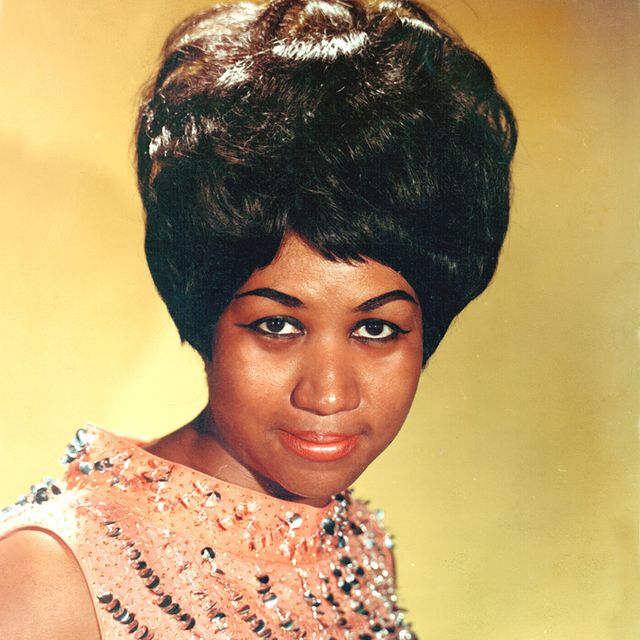Aretha Franklin, the Queen of Soul, left an indelible mark on the world with her powerful voice and timeless music. However, her life was not without its challenges, including her battle with breast cancer. This article delves into her journey, offering a detailed exploration of her experience with the disease, its impact on her life, and the lessons we can learn from her resilience.
Breast cancer is one of the most prevalent forms of cancer affecting women worldwide. Aretha Franklin's diagnosis brought this issue to the forefront, highlighting the importance of awareness and early detection. Her story serves as an inspiration for countless individuals facing similar battles.
In this article, we will explore Aretha Franklin's life, her battle with breast cancer, and the broader implications of her journey. We aim to provide valuable insights while honoring her legacy as a symbol of strength and perseverance.
Read also:Rose Marie Berryman A Comprehensive Guide To Her Life And Achievements
Table of Contents
- Aretha Franklin's Biography
- Understanding Breast Cancer
- Aretha Franklin's Diagnosis
- Her Treatment Journey
- The Impact on Her Life
- The Importance of Breast Cancer Awareness
- Prevention and Early Detection Tips
- Building a Strong Support System
- Aretha's Legacy of Inspiration
- Conclusion
Aretha Franklin's Biography
Aretha Franklin, born on March 25, 1942, in Memphis, Tennessee, rose to fame as one of the most celebrated singers in music history. Known for her soulful voice and captivating performances, she became an icon in the music industry. Below is a brief overview of her life:
Early Life and Career
Aretha's passion for music began at a young age, nurtured by her father, a Baptist minister. Her early exposure to gospel music laid the foundation for her future success. By the age of 14, she was already performing in gospel groups, showcasing her incredible vocal talent.
Biodata
| Full Name | Aretha Louise Franklin |
|---|---|
| Date of Birth | March 25, 1942 |
| Place of Birth | Memphis, Tennessee |
| Occupation | Singer, Songwriter, Activist |
| Awards | 18 Grammy Awards, Presidential Medal of Freedom |
Understanding Breast Cancer
Breast cancer is a complex disease that affects millions of women globally. It occurs when abnormal cells in the breast grow uncontrollably, forming a tumor. Early detection and treatment are crucial for improving survival rates.
Types of Breast Cancer
- Invasive Ductal Carcinoma (IDC)
- Invasive Lobular Carcinoma (ILC)
- Ductal Carcinoma In Situ (DCIS)
Aretha Franklin's Diagnosis
Aretha Franklin's battle with breast cancer began when she was diagnosed in the early 2000s. Although she kept her condition private, her courage in facing the disease became an inspiration to many. Her diagnosis highlighted the importance of regular check-ups and screenings.
Signs and Symptoms
Common symptoms of breast cancer include:
- Lumps or thickening in the breast
- Changes in breast size or shape
- Nipple discharge or inversion
Her Treatment Journey
Aretha underwent a comprehensive treatment plan, which included surgery, chemotherapy, and radiation therapy. Despite the challenges, she remained committed to her health and well-being. Her resilience during this time exemplified her strength and determination.
Read also:Unveiling The World Of Mixed Wrestling Tube A Comprehensive Guide
Role of Support Systems
Having a strong support system is vital for individuals battling breast cancer. Aretha's family and friends played a crucial role in her recovery, providing emotional and practical support throughout her journey.
The Impact on Her Life
Breast cancer significantly impacted Aretha Franklin's life, both personally and professionally. While it forced her to take breaks from her music career, it also deepened her appreciation for life and strengthened her resolve. Her experiences inspired her to advocate for breast cancer awareness.
Emotional and Psychological Effects
The emotional toll of breast cancer cannot be underestimated. Aretha openly discussed the challenges she faced, emphasizing the importance of mental health during treatment. Her honesty resonated with many, encouraging others to seek help when needed.
The Importance of Breast Cancer Awareness
Raising awareness about breast cancer is essential for early detection and prevention. Aretha Franklin's story serves as a powerful reminder of the need for regular screenings and education. By sharing her journey, she helped break the stigma surrounding the disease.
Global Initiatives
Organizations worldwide are working tirelessly to combat breast cancer. Programs such as the Susan G. Komen Foundation and Breast Cancer Awareness Month aim to educate the public and fund research for a cure.
Prevention and Early Detection Tips
While breast cancer cannot always be prevented, there are steps individuals can take to reduce their risk:
- Perform regular self-examinations
- Attend routine mammograms
- Maintain a healthy lifestyle
- Stay informed about family health history
Building a Strong Support System
A robust support system is crucial for anyone facing breast cancer. Family, friends, and support groups can provide the encouragement and care needed during treatment. Aretha Franklin's journey underscores the importance of leaning on others during difficult times.
Joining Support Groups
Participating in support groups can offer invaluable emotional support. These groups connect individuals facing similar challenges, fostering a sense of community and understanding.
Aretha's Legacy of Inspiration
Aretha Franklin's legacy extends beyond her music. Her courage in battling breast cancer inspires countless individuals to face their own challenges with strength and grace. Her story is a testament to the power of resilience and hope.
Lessons from Aretha's Journey
From Aretha's experience, we learn the importance of:
- Early detection and regular check-ups
- Seeking support from loved ones
- Staying informed about health risks
Conclusion
Aretha Franklin's breast cancer journey is a powerful reminder of the challenges and triumphs associated with the disease. By sharing her story, she has inspired millions to prioritize their health and seek support when needed. We encourage readers to take action by scheduling regular screenings and educating themselves about breast cancer.
We invite you to leave your thoughts in the comments below or explore other articles on our site for more insights. Together, we can continue to honor Aretha Franklin's legacy by promoting awareness and supporting those affected by breast cancer.


